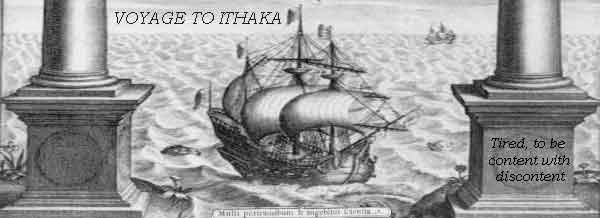A childhood favourite
As I lie awake in this London heat, I find myself remembering as a child lying awake in my grandparents' house, and the books I used to read in bed here. There was a picture book with a poem which I recall disliking - the strange names and sinister figures, as I saw them, in the illustration, and I was too young to understand the poem. Years later I rediscovered the poem and found it anything but frightening. What a nice man Leigh Hunt seems to have been.
Abou Ben Adhem
Abou Ben Adhem (may his tribe increase!)
Awoke one night from a deep dream of peace,
And saw, within the moonlight in his room,
Making it rich, and like a lily in bloom,
An Angel writing in a book of gold:
Exceeding peace had made Ben Adhem bold,
And to the Presence in the room he said,
"What writest thou?" The Vision raised its head,
And with a look made of all sweet accord
Answered, "The names of those who love the Lord."
"And is mine one?" said Abou. "Nay, not so,"
Replied the Angel. Abou spoke more low,
But cheerily still; and said, "I pray thee, then,
Write me as one who loves his fellow men."
The Angel wrote, and vanished. The next night
It came again with a great wakening light,
And showed the names whom love of God had blessed,
And, lo! Ben Adhem's name led all the rest!
Abou Ben Adhem
Abou Ben Adhem (may his tribe increase!)
Awoke one night from a deep dream of peace,
And saw, within the moonlight in his room,
Making it rich, and like a lily in bloom,
An Angel writing in a book of gold:
Exceeding peace had made Ben Adhem bold,
And to the Presence in the room he said,
"What writest thou?" The Vision raised its head,
And with a look made of all sweet accord
Answered, "The names of those who love the Lord."
"And is mine one?" said Abou. "Nay, not so,"
Replied the Angel. Abou spoke more low,
But cheerily still; and said, "I pray thee, then,
Write me as one who loves his fellow men."
The Angel wrote, and vanished. The next night
It came again with a great wakening light,
And showed the names whom love of God had blessed,
And, lo! Ben Adhem's name led all the rest!
James Leigh Hunt (1784-1859)



2 Comments:
Oh, well, Leigh Hunt was once in the early Pre-Raphaelite canon of 60 most remarkable artists of all ages. You see, only Shakespeare and the author of the Book of Job were awarded three stars. You might ask who were awarded two... Well,Homer, Dante, Thackeray and Da Vinci. Whereas Milon, Plato and Leigh Hunt were not awarded a single one! The ones awarded one star were Raphael, Mrs. Browning and a Mrs. Gatty.
There! Strange ways had the Pre-Raphaelites!
All this was to say something about Leigh Hunt. Excuse me!
You're excused, of course! Contemporary judgments from the past are always amusing now that we think we know the true value of the work concerned. "As the best are not available, I suppose we must take one of the second-rate men" - Dr Abraham Platz of Leipzig when J.S. Bach was appointed Cantor after Graupner refused the job.
Post a Comment
<< Home